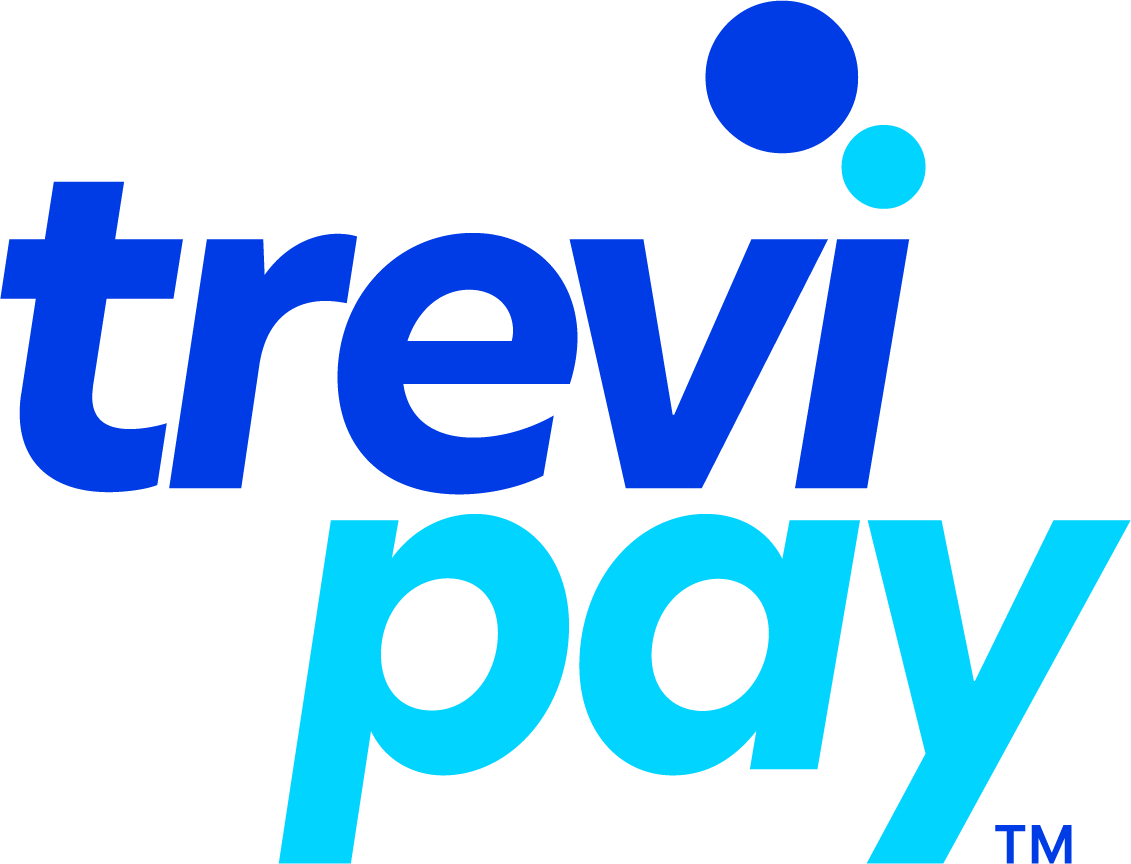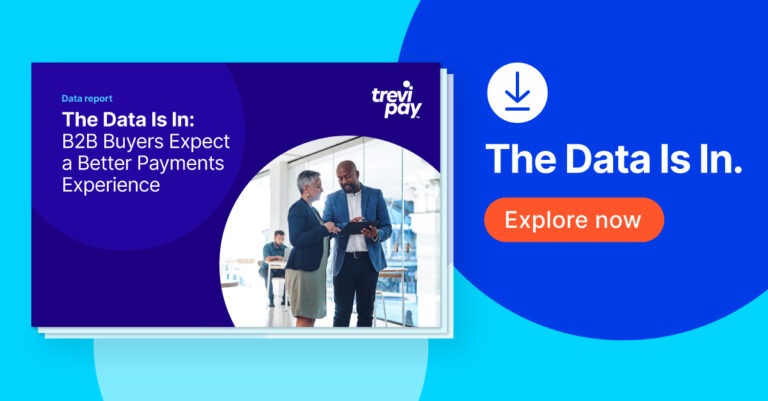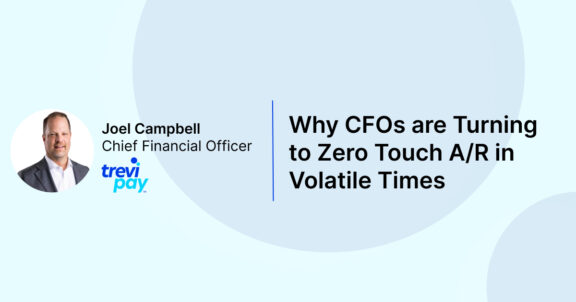The past few years have been tough for businesses of all types. B2B companies have struggled to meet the digital desires of today’s business buyers, who have been spoiled by the ease of B2C purchasing experiences. Although it’s commonly accepted B2B trends lag behind consumer-focused initiatives, business customers still want—and expect—fast and frictionless transactions.
To discover exactly what B2B buyers are looking for from their purchasing experience, TreviPay and Murphy Research conducted an online survey of 300 global business buyers between May 17 and June 2, 2023. Of these, 100 were located in the U.K., with an average annual revenue of £35,117,240.1 A probability sample of the same size would yield a margin of error of +/- 5% at a 95% confidence level.
B2B Buyers Have Significant Pain Points
When asked to select from a list of 12 pain points they typically experience while making business purchases, our respondents told us their top three payment pain points are:
- Inefficient processes, which are a direct reflection of manual back-office systems
- Invoices that are incorrect, the result of semi-manual processes that can easily miss negotiated pricing or invoice scheduling agreements
- Slow buyer onboarding, due to manual background checks and fear of fraud
Top 3 B2B Buyer Payment Pain Points

Inefficient Processes

Invoices Do Not Reflect Correct Data/Information

Slow Onboarding
Slow Onboarding Is Really Slow in the U.K.
Business buyers have identified a B2B trend that they don’t like: slow onboarding. Our respondents reported it takes an average of 3.3 days—a full day longer than the U.S. average of 2.2 days. And although U.K. respondents said 10 days is the maximum acceptable onboarding length, the fact that it’s one of their top three pain points belies their impatience, even if they politely express their patience.
The reality is that a new B2B customer is in the buying moment; they’ve done their research and are ready to buy—only to face onboarding delays that may cause them to second-guess their decision. And very possibly abandon this purchase in favour of a competitor.
Credit Cards Are Convenient but Not Perfect
In many ways, credit cards seem like the answer to an inefficient, error-prone and slow payments process. They’re fast (just enter the card details) and convenient (no waiting for onboarding or credit approvals)—and 95% of the B2B buyers we surveyed report using credit cards monthly with an average purchase amount of £7,333.2
However, credit cards alone won’t cut it for all B2B purchases, especially for the larger orders corporations often place. In fact, our respondents indicated that transaction limits are the top reason they can’t use credit cards all the time. Furthermore, high processing fees, increased strain on A/R and procurement departments, and surcharges also limit credit card use.
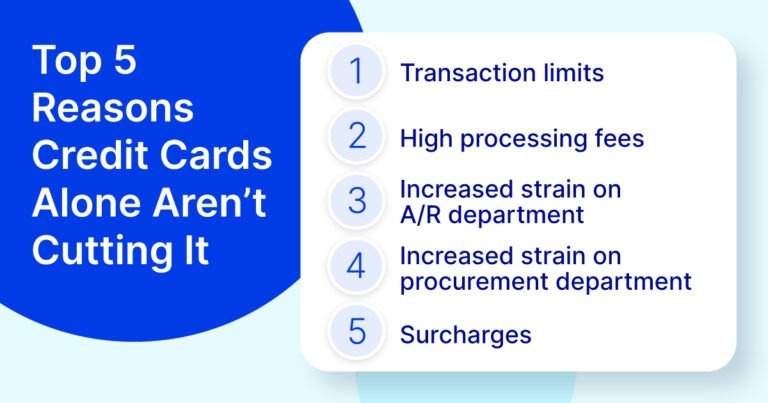
So How Do B2B Buyers Prefer to Pay?
Trade credit, also called net terms or invoice terms, is the preferred B2B payment method for 72% of business buyers in the U.K. In fact, 59% of all business buyers prefer trade credit for larger purchases. Most notably, nearly half (45%) of them would also buy more from a seller that offered them trade credit.
That’s why offering trade credit is an essential part of B2B buyer loyalty: having an established financial relationship and a known trade credit limit with a seller gives the buyer good reason to come back time and again.
Trade Credit Drives B2B Sales
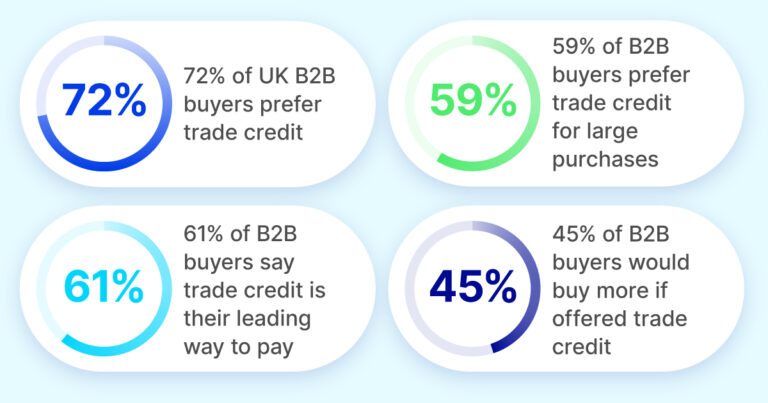
Buyers Want Flexible Net Terms
Not only do B2B buyers want the option to pay with trade credit, they want flexibility within these payment agreements. Specifically, 81% of B2B buyers say it’s very or extremely important to choose their invoicing schedule—and 51% of buyers will choose a merchant that offers adjustable scheduling.

Trade Credit Is Good, Customisable Trade Credit Is King
With 7 out of 10 UK B2B buyers preferring to pay with trade credit, it’s an important payment method to offer. But dig a little deeper into what business customers want, and it turns out that any old trade credit won’t do—there are specific features that they want.
Nearly eight out of 10 B2B buyers (78%) need to be able to customise or control certain aspects of their purchasing experience. For example, some buyers require flexible fields to capture PO numbers, serial numbers, VINs or other important tracking details. In today’s increasingly digital corporate ecosystem, these specifics streamline back-office processes and approvals. Without them, a B2B buyer may not be able to complete a purchase.
Setting Up Purchasing Controls Is Important
It’s important for our suppliers to allow me to set up purchase controls.

B2B Trends: Today’s Perfected B2B Payments
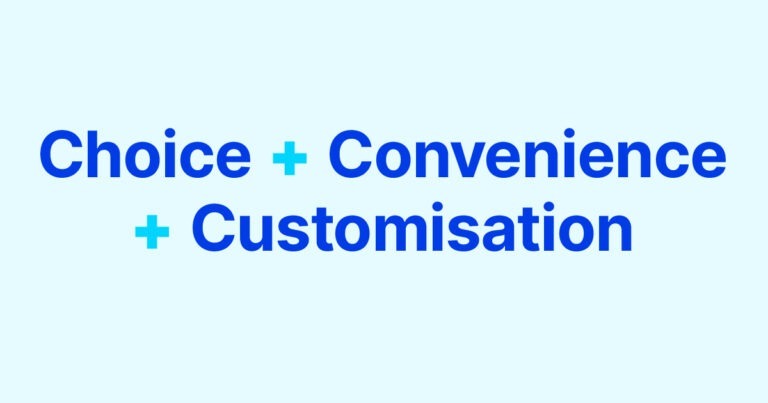
We’ve said it before, and we’ll say it again: loyalty begins at the payment. For business customers, the payment experience is a key part of the purchasing process. And a slow, laborious, inefficient B2B payment process can result in abandoned purchases and lost business.
B2B buyers know exactly what they need—and want—from their B2B transactions. Let’s take a closer look at what they told us.
- Buyers want B2B payment method choices:
With trade credit (also called net terms) and credit cards being the preferred methods. In many cases, corporate policies dictate which B2B payment method must be used, and business customers must find suppliers that accept the method they need to complete the purchase. - B2B buyers want convenience:
This means a fast, frictionless and omnichannel onboarding and payments experience or a quick integration into an ERP, if necessary. - B2B buyers want customisation options:
Today’s digital business ecosystem means that companies expect to have essential tracking information on receipts and invoices. In the past, manual workarounds or a heavy development lift could add these details—today’s best B2B payment platforms put these capabilities at an admin’s fingertips. Furthermore, other buyers prefer having scheduling options for invoices. In other words, today’s B2B sellers need a payments solution that is modern, flexible and easy to configure on a client-by-client basis.
TreviPay Provides the Perfected Payment Process
TreviPay’s B2B payments and invoicing platform provides everything business customers really want, delivered at scale.
- Efficient Processes that can propel a B2B company into the next stage of digital transformation
- Easy Onboarding with an all-digital, automated trade credit application and approval process that’s more accurate than manual underwriting
- Payment Choice: Trade Credit, Credit Cards and automated clearing options all in 20 currencies
- Trade Credit Available to give business customers access to the net terms they need, underwritten by TreviPay
- Accurate Invoices thanks to smart automation that eliminates common manual errors and ensures negotiated pricing is always used
And We Can Make It All Happen Quickly
Digital payments have accelerated and so have we. At TreviPay, we’ve done the heavy lifting so a new payments solution can launch into the market fast.
- A modern collection of APIs and webhooks that make it easy to integrate with even the most complex systems, including integration directly into buyers’ A/P systems via XML, EDI or CXML, and eCommerce and ERP systems such as Ariba, SAP, Oracle, Coupa and Jaggaer.
- TreviPay also supports a growing library of pre-built eCommerce and marketplace integrations, including Mirakl, Spryker, BigCommerce, Quickbooks and Adobe Commerce (Magento), empowering businesses to unlock the full potential of their online experience.
Get the Full Report
This blog is a UK-focused companion to the comprehensive global report, The Data Is In: B2B Buyers Expect a Better Payments Experience. In the full report, we take a deeper dive into the latest B2B trends around the payments and invoicing process, including:
- Top 3 Barriers to New Buyer Onboarding
- The Business Consequences of Inefficient Payments
- B2B Buyers’ Most Important Seller Features
- Top 7 Drivers of B2B Buyer Loyalty
- The Perfected B2B Payments Experience
